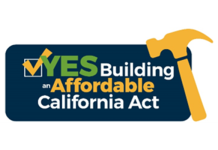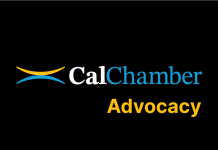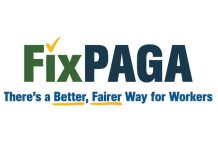SACRAMENTO, CA — The California Chamber of Commerce Board of Directors recently voted to support Propositions 1, 2, and 4, on the November 2018 ballot.
Proposition 1—SUPPORT
If approved by voters, Proposition 1, the Veterans and Affordable Housing Bond Act of 2018, would authorize $4 billion in general obligation bonds for housing-related programs, loans, grants, and projects and housing loans for veterans.
The CalChamber Board supports Proposition 1 because the housing supply and demand imbalance in California is having significant negative impacts on the state economy and businesses.
The housing shortage is estimated to cost California approximately $140 billion a year—the equivalent of 6% of gross state product—and that does not include lost business opportunities or expansions forgone or relocations instituted by employers because they cannot recruit or keep workers in the state’s high-cost housing environment.
Proposition 1 is projected to create more than 100,000 jobs associated with or indirectly related to the construction of new housing and inject billions of dollars back into the state’s economy. As this is a state bond measure, the costs associated with Proposition 1 will be spread over the entire California tax paying population, thereby minimizing impacts on any one individual or business.
Proposition 2 — SUPPORT
Proposition 2 is a revenue bond that spends only revenue generated from Proposition 63 (2004), which provides for a 1% tax on income above $1 million (an estimated $2.23 billion in the fiscal year 2018–2019). This measure would authorize the state to use the revenue generated from Proposition 63 (2004) on $2 billion in revenue bonds to address the homelessness crisis in California for those suffering from mental health issues. There would be no additional taxes and no additional spending from the General Fund as a result of this bond.
The CalChamber Board voted to support Proposition 2 because the measure improves the economy by helping the homeless reintegrate and reduces public health care costs.
Proposition 2 builds housing and keeps mental health services in reach for people. More than 134,000 Californians are homeless. It is estimated that as many as a third of the people living in these unsafe conditions are living with an untreated mental illness.
If passed by voters, Proposition 2 will result in the construction of 20,000 permanent supportive housing units. This allows coordination of mental health and substance use services, medical care, case managers, education and job training to help people get the treatment and housing stability they need.
Proposition 4 — SUPPORT
Proposition 4 authorizes the state to sell $1.5 billion in general obligation bonds for capital improvement projects at the 13 children’s hospitals as well as other public or private nonprofit hospitals that provide services for children eligible for the California Children Services (CCS) program.
In 2004, Proposition 61, the Children’s Hospital Bond Act of 2004 was approved with 58% of the vote in the general election and authorized the state to sell $750 million in general obligation bonds for capital improvements at children’s hospitals. In 2008, voter approval of Proposition 3, a $980 million bond, essentially authorized further bond issuance for the same purpose as the Children’s Hospital Bond Act of 2004. The CalChamber supported both ballot initiatives.
The previous bonds have enabled the hospitals to build new patient towers that meet 2030 seismic standards and purchase new equipment and new medical technology.
CalChamber Highlights Positions on All Ballot Initiatives
Below is a recap of CalChamber positions on November 2018 Ballot Measures:
SUPPORT
Proposition 1 — Authorizes Bonds to Fund Specified Housing Assistance Programs.
Proposition 2 — Authorizes Bonds to Fund Existing Housing Program for Individuals with Mental Illness.
Proposition 3 – Authorizes Bonds to Fund Projects for Water Supply and Quality, Watershed, Fish, Wildlife, Water Conveyance, and Groundwater Sustainability and Storage.
Proposition 4 — Authorizes Bonds Funding Construction at Hospitals Providing Children’s Health Care.
Proposition 5 – Changes Requirements for Certain Property Owners to Transfer their Property Tax Base to Replacement Property.
OPPOSE
Proposition 6 – Eliminates Certain Road Repair and Transportation Funding. Requires Certain Fuel Taxes and Vehicle Fees be Approved by The Electorate.
Proposition 8 – Regulates Amounts Outpatient Kidney Dialysis Clinics Charge for Dialysis Treatment.
Proposition 9 – Three States Initiative – Removed from ballot on 7/18/18 by order of California Supreme Court
Proposition 10 – Expands Local Governments’ Authority to Enact Rent Control on Residential Property.
NOT TAKING A POSITION
Proposition 7 — Conforms California Daylight Saving Time to Federal Law. Allows Legislature to Change Daylight Saving Time Period.
Proposition 11 — Requires Private-Sector Emergency Ambulance Employees to Remain On-Call During Work Breaks.
Proposition 12 — New Standards for Confinement of Specified Farm Animals; Bans Sale of Certain Noncomplying Products.
The California Chamber of Commerce (CalChamber) is the largest broad-based business advocate to government in California. Membership represents one-quarter of the private sector jobs in California and includes firms of all sizes and companies from every industry within the state. Leveraging our front-line knowledge of laws and regulations, we provide products and services to help businesses comply with both federal and state law. CalChamber, a not-for-profit organization with roots dating to 1890, promotes international trade and investment in order to stimulate California’s economy and create jobs. Please visit our website at www.calchamber.com
#####


